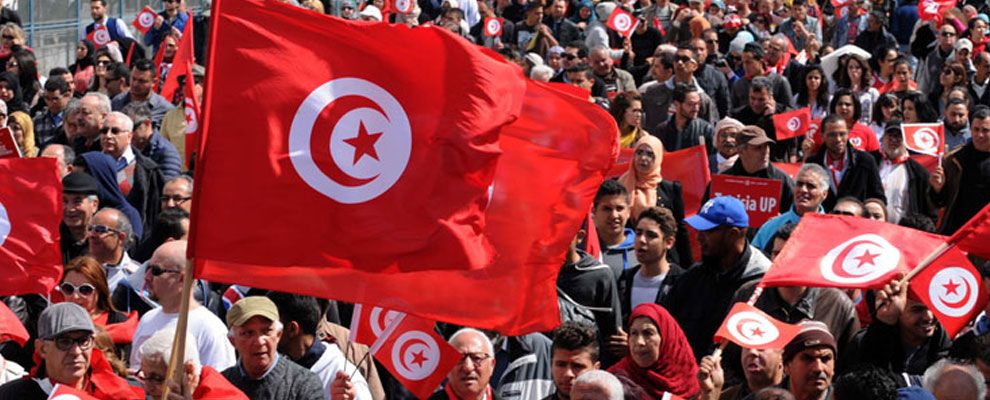What will change in Tunisia with the Mechichi government

The latest political news in Tunisia analyzed by Giulia Cimini for International Affairs
On 2 September, the new Tunisian government was sworn in at the presidential palace in Carthage. After a session lasting more than 15 hours that began the day before, Hichem Mechichi 's government team won the trust of parliament, with 134 votes in favor and 67 against, well exceeding the minimum required threshold of 109 votes. Mechichi's is the third executive to take office since the last legislative elections in October 2019, following the resignation of Elyes Fakhfakh in July, accused of an alleged conflict of interest.
Hichem Mechichi, 46, independent, with a degree in law and trained at the prestigious French National School of Administration (ENA), was the first legal affairs advisor to President Kais Saied and interior minister in the outgoing government. Like Fakhfakh before him, his name was imposed by the presidency amid the discontent of the parties.
TECHNOCRATES VS POLITICS
In clear discontinuity with the previous governments, the new executive has fewer members (25 ministers and 3 undersecretaries) and mainly technocrats (judges, academics, public employees and private managers). Technocrats who, as Tunisian business expert Vincent Geisser recalled in a recent interview , are completely "anonymous", little known to the public, but also to many of their own colleagues.
In this way, we wanted to underline the break with the ruling class in recent years, which has become increasingly unpopular with public opinion, yet resuming a "tradition" of senior government officials typical of the pre-revolutionary era. In this circumstance, more than anything else the equation "technical and administrative skills" with "efficiency and success" is proposed again, as opposed to a purely "political" nature considered intrinsically contentious, divisive and unresolved. Not that the ruling class has so far proved otherwise, but the association tout-court should at least be examined case by case.
In his inauguration speech, Mechichi underlined how the deterioration of the economic situation in the country requires the presence of competent figures capable of intervening quickly and effectively to find solutions to the present challenges, especially since the patience of Tunisians "has been severely tested. ”From the continuing political instability.
POPULAR DISILLUSION
Moreover, on the occasion of the administrative elections of May 2018, the electoral campaign of the independent lists, focused on an alleged "non-political" but simply "administrative" nature of the candidates and their respective projects – rather generic in their programs not unlike those of the parties – he had decreed its success riding the wave of popular disillusionment. A similar dynamic had been reproduced with the presidential elections which, not surprisingly, had seen in the head two figures, Saied and the media magnate Nabil Karoui who, although extremely different, were both alien to the political establishment. And the idea that this feature is in itself a harbinger of improvement is becoming increasingly popular, not unlike many other realities and contexts.
And once again the "citizen-president" Saied imposed his leadership without giving in to the demands of Parliament, which was pressing for a less radical government in its exclusion of party figures, an expression of the balance of power in the field after the elections. First of all Ennahda, the majority party which, despite initial reluctance and according to a script already seen, at the last announced support for the new executive albeit with reservations. Same thing for his allies in parliament, especially Qalb Tounes and the Islamist formation El Karama.
In the meantime, there are already rumors of disagreements between Saied and Mechichi for some ministerial posts unpopular with the president who would finally have invited not to vote the confidence in the executive proposed by his own appointee, promising not to dissolve the chambers. And in a now customary question and answer at a distance, Saied intervened to reject the accusations to the sender, reaffirming the responsibility of parliament in the choice of the government.
THE HERCULAR CHALLENGES OF THE NEW EXECUTIVE
In the short term, the executive's declared priority will be to curb the bleeding of public finances, to resume the production of phosphates and oil blocked by recent protests, to reform the Tunisian administration and the fight against poverty.
Ça va sans dire , even for this government, it is of primary importance to deal with economic and social urgencies, exacerbated by the effects of the first wave of the global health crisis and related containment measures, which have thwarted the hopes of a recovery in tourism, a leading sector of the Tunisian economy, and seen the unemployment rate rise to 18% in this second quarter.
To complicate everything, the recent exponential growth in confirmed cases of Covid-19 and the umpteenth terrorist attack against the National Guard in Sousse on 6 September last to remember a creeping danger in the country. In fact, albeit on a much smaller scale than the attacks on foreign tourists in 2015 and the siege of Ben Guerdane, a city on the border with Libya, in 2016, similar terrorist acts have never ceased to affect the security forces in the country.
And while the economic challenges facing Tunisia are worthy of one of Hercules' twelve labors – as Brookings researcher Sharan Grewal pointed out – the rise of nostalgic and loyalists of the old regime does not stop. In fact, the steady rise of the Parti Destourien Libre (Pdl), the ultra-nationalist and anti-Islamist right-wing party led by Abir Moussi, emerged from the latest poll by the Tunisian opinion polling agency Emrhod. The PDL, gaining 8 percentage points compared to last month, is confirmed in first place in the voting intentions of Tunisian voters, collecting 36% of preferences, with Ennahda following at 23%. And Moussi, a “strong woman in power”, follows President Saied in approval, opening up scenarios that are anything but rosy for Tunisian democracy.
This is a machine translation from Italian language of a post published on Start Magazine at the URL https://www.startmag.it/mondo/tunisia-nuovo-governo-cosa-cambia/ on Sun, 13 Sep 2020 05:50:14 +0000.
